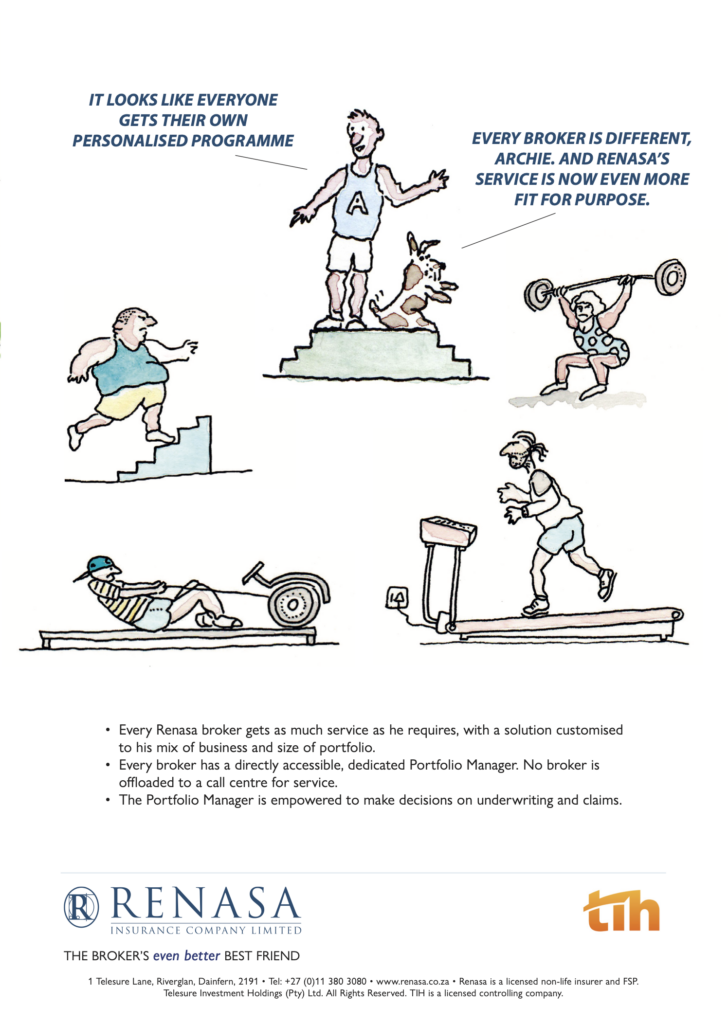In conversation with Willem Reynders, Compliance Specialist at Telesure Investment Holding SA
The Prudential Authority and the Financial Sector Conduct Authority (PA and FSCA) published Joint Standard 1 of 2024 (Joint Standard) in terms of the Financial Sector Regulation Act, 2017, which will come into effect from 1 December 2024. Please give us a brief overview of what this means.
The publication of the Joint Standard demonstrates the ongoing focus which will be placed on outsourcing by the regulatory authorities. This Joint Standard will replace the previous Prudential Standard GOI 5 from 1 December 2024 and aims to ensure uniform application of outsourcing requirements by both authorities. Some key things that need to be done as part of the change:
- Insurers must ensure their outsourcing policy is updated in accordance with the new Standard.
- Insurers must have an in-depth look at their business model to identify what functions they consider to be material functions.
- Insurers must conduct thorough due diligence before entering into outsourcing arrangements to identify and manage risks. A more enhanced due diligence assessment by insurers on outsource service providers is expected, especially where the function is of a material nature and moving forward a materiality assessment will be required.
- Insurers are required to implement robust performance management processes and policies.
- Outsourcing arrangements must be evaluated for access, credit, compliance, market conduct, contractual and other relevant risks.
- Insurers must ensure that the service providers they partner with are reliable and capable of meeting their obligations in terms of the outsourcing agreement.
- Insurers must notify the PA and FSCA at least 30 days before entering into material outsourcing arrangements.
Who do the joint standards apply to?
Joint Standard 1 of 2024 applies to all insurers licensed under the Insurance Act in South Africa, with the exception of Lloyd’s and branches of foreign reinsurers. This standard specifically targets the outsourcing of “material functions” by these insurers. The reality however is that insurers will subject their outsource service providers and intermediaries to additional requirements where applicable therefore expanding the application and creating the intended safeguards. There are much more to this than we can cover in one sitting, so I thought of just looking at one or two interesting issues:
The requirement that: Outsourcing arrangements should only be entered into where there is evidence that the benefits outweigh the costs and potential risks. What does this mean for brokers and their current models?
The requirement that outsourcing arrangements should only be entered into where the benefits outweigh the costs and potential risks means that brokers and Insurers will need to carefully evaluate their current models and practices. Some key points according to Renasa:
- It may be beneficial for brokers to conduct a cost-benefit analysis for each outsourcing arrangement they have entered into with an insurer to demonstrate the efficiencies and benefits introduced and to show the improved customer outcomes.
- Brokers may need to reconsider their partnerships and possibly renegotiate terms to align with the new requirements to enhance benefits and service offerings. They should focus on building relationships that offer clear benefits and minimal risks which may lead to unsatisfactory outcomes for customers.
- Brokers must also identify, manage and mitigate potential risks associated with outsourcing. This includes operational, financial, and reputational risks.
- It may also be beneficial to brokers to maintain documentation to demonstrate that the benefits of outsourcing outweigh the costs and risks. This documentation will be crucial for regulatory compliance and audits.
Brokers will be required to adopt a more strategic approach to entering into outsourcing arrangements as it is likely to attract additional oversight requirements and pave the way for enhanced collaboration between broker and insures in delivering the outsource services. Brokers also have a responsibility to ensure that every arrangement is beneficial to customers and in compliance with the new Joint standard.

Renasa has always been the broker’s best friend.
Our entire business focus is exclusively on helping our intermediaries outcompete their competitors.
Now, as part of TIH, South Africa’s powerful insurance group,
we commit to do even more for our brokers.

Renasa has always been the broker’s best friend.
- Every Renasa broker gets as much service as he requires, with a solution customised to his mix of business and size of portfolio.
- Every broker has a directly accessible, dedicated Portfolio Manager. No broker is offloaded to a call centre for service.
- The Portfolio Manager is empowered to make decisions on underwriting and claims.
Renasa is a licensed non-life insurer and FSP. Telesure Investment Holdings (Pty) Ltd. All Rights Reserved. TIH is a licensed controlling company.
The following appears in s7.5: “An insurer may not enter into or maintain an outsourcing arrangement relating to a material function unless” It then states several requirements. Please tell us more about that?
Firstly, I think it is important to define what a material function is. In terms of Joint Standard 1 of 2024, a “material function” is defined as a function or activity related to an insurer’s business that has the potential to significantly impact the insurer’s business operations or its ability to manage risks effectively if it is disrupted. This definition highlights the importance of these functions in maintaining the stability and efficiency of the insurer’s operations.
Insurers must identify and evaluate which functions within their business are considered material. For example, this could include outsourcing the insurer’s claims or complaints department. These functions may be considered material because their outsourcing could have a significant impact on the insurer’s business operations or its ability to manage risks effectively, should it be disrupted.
Specific requirements should an insurer wish to outsource any function it deems to be material:
Section 7.5 of Joint Standard 1 of 2024 outlines specific requirements that insurers must meet before entering into or maintaining an outsourcing arrangement for a material function:
- Insurers must conduct a thorough due diligence assessment to identify and manage all risks associated with the outsourcing of a material function.
- There must be clear evidence that the benefits of the outsourcing arrangement outweigh the costs and potential risks. The fee payable for the function outsourced must be reasonable and commensurate with the services performed for the fee and the insurer must ensure that fair outcomes to customers are not impeded.
- The Insurer must be satisfied with the Service Provider Competence’s to fulfil the material function being outsourced. The service provider must meet the fit and proper requirements relating to competence and integrity as specified in Prudential Standard GOI 4 and be able to demonstrate this. (Fitness and Propriety of Key Persons of Insurers).
- Risk Assessment to be conducted by the insurer. Insurers must assess whether the service providers have multiple outsourcing arrangements with other insurers that could increase risks to the Insurer.
- Insurers are required to notify the PA and the FSCA at least 30 days before entering into a material outsourcing arrangement.
- Insurers must also inform the Authorities in the prescribed format within 7 days of terminating any outsourced material function.
What would you advise brokers to do at this stage and what assistance can they expect from Renasa?
Brokers should be aware that the new Standard may likely introduce changes and amendments to their current outsourcing agreements with insurers and will require enhanced collaboration between Renasa and the brokers to give effect to the various requirements with the ultimate aim of improving the business relationship and outcomes for the policyholders.
For any outsourcing arrangements between Renasa and brokers entered into before 1 December 2024, these must comply with the Joint Standard by 30 November 2026 (24 months). Or alternatively, Renasa must comply with the Joint Standard upon the renewal or renegotiation of the outsourcing arrangement, whichever comes first.
Renasa is currently reviewing its outsourcing agreements to ensure compliance and will introduce a streamlined process to facilitate the transition.
As the broker’s even better best friend, Renasa will guide and support brokers to ensure a seamless and effortless transition which benefits Renasa, the broker and most importantly the customer.

